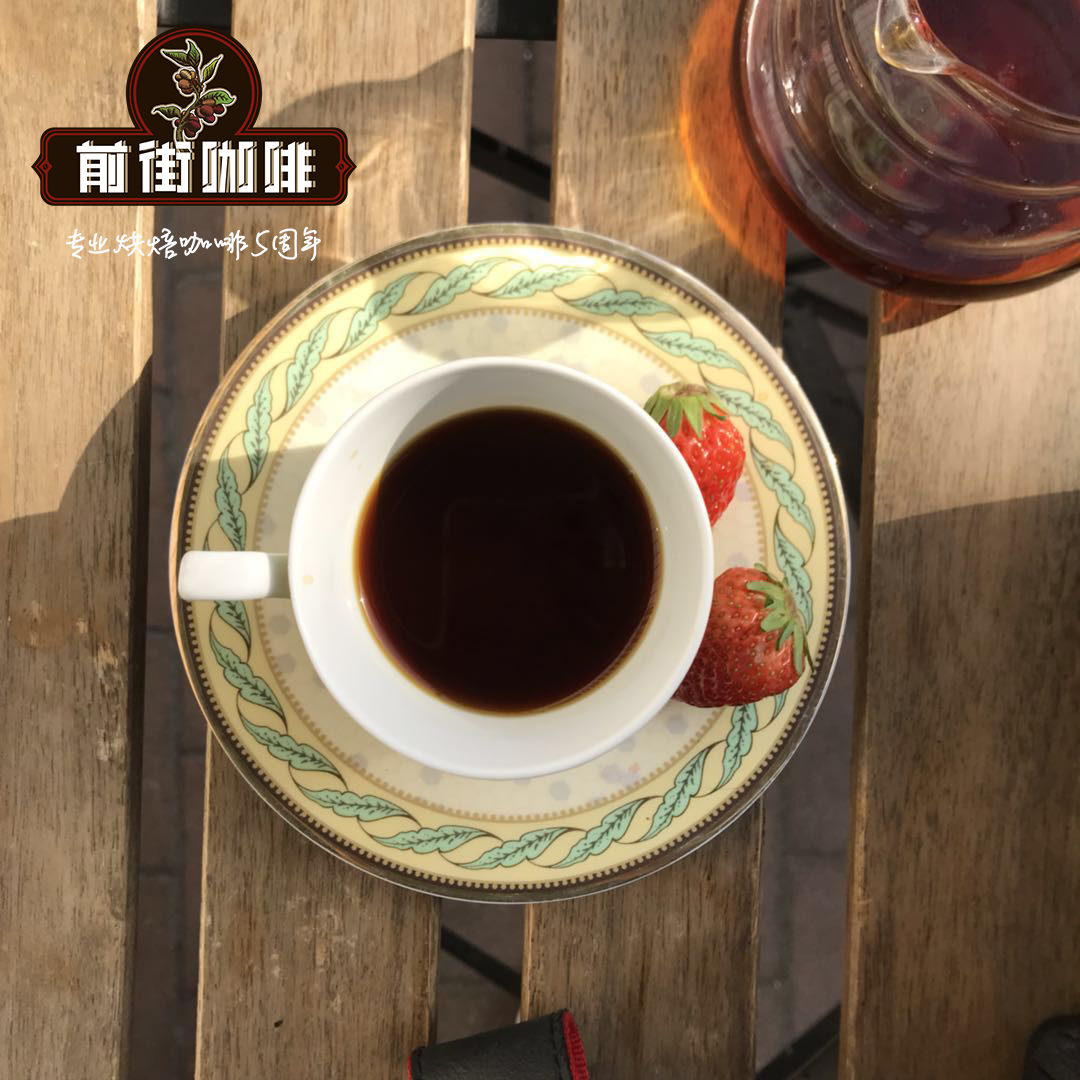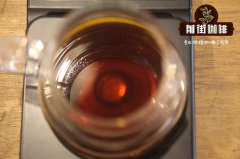What's the taste of mocha coffee? What should the right way to do mocha coffee taste?

Professional coffee knowledge exchange More coffee bean information Please pay attention to coffee workshop (Weixin Official Accounts cafe_style)
When you take a sip of mocha coffee, what do you taste besides bitterness?
Don't rush to add sugar, creamer, or milk. Good coffee is worth waking up all your taste buds and savoring its original flavor.
Tasting good coffee is not only about using the tongue to feel it, but also about enjoying the aroma of coffee in your mouth.
Besides, it is a very delicate thing to calm down and taste good coffee while enjoying good coffee, so it is also a part of tasting good life when you calm down and taste good coffee!
When drinking coffee, you should look at the physical condition, the surrounding atmosphere, etc., so as not to affect your good mood when drinking good coffee.
Sometimes when you drink coffee in a poor coffee shop, you will drink semi-cold coffee. At this time, no matter how good the quality of the coffee beans or how good the brewing skills are, the taste of the coffee will be greatly reduced.
So "drink hot" is a necessary condition for tasting delicious mocha coffee, even in the hot summer days, should also drink hot coffee, because coffee cold, its flavor will be reduced. Therefore, when brewing coffee, in order not to reduce the taste of coffee, the coffee cup should be heated in boiling water in advance. The appropriate temperature of coffee is 83 degrees Celsius at the moment of brewing, 80 degrees Celsius when poured into the cup, and 61-62 degrees when it reaches the mouth, which is ideal.
Tasting delicious mocha coffee, in addition to paying attention to the appropriate coffee temperature, but also have the appropriate amount, drinking coffee is not like drinking or juice, a full cup of coffee, light to see the loss of interest in drinking. Generally to seven or eight full for the right amount, moderate amount of coffee will not only stimulate the taste, after drinking there will be no greasy feeling, and it is memorable. In addition, the right amount of coffee can moderately promote the body to recover fatigue and keep the mind clear.
Mocha coffee tastes different, so you can't drink three or four cups in a row like tea or coke.
The amount of coffee in a formal coffee cup is the most appropriate, generally drinking coffee with 80-100cc as the right amount. Sometimes if you want to drink three or four cups in a row, then you have to dilute the concentration of coffee, or add a lot of milk, but still take into account the physiological reaction degree, to increase or decrease the concentration of coffee, do not cause greasy, palpitations or nausea feeling.
In addition, you can make some changes in the deployment of sugar, so that when you taste mocha coffee, you don't have a different flavor.
Mocha coffee (MOCHA): At present, the coffee produced in Yemen is the best, followed by the Mocha of Ethiopia; Mocha coffee with lubrication in the acid to strong acid, sweet nature is particularly good, unique flavor, containing chocolate taste; with the temperament of a noble woman, is a very characteristic pure coffee.
Yemen mocha coffee
It has some of the world's most unique, rich and fascinating complex smells: red wine, wild, dried fruit, blueberry, grape, cinnamon, tobacco, sweet spice, log and even chocolate. You can see all kinds of adjectives used in Yemeni mocha coffee.
Yemen, home of mocha, must be mentioned when it comes to Yemeni coffee. We have all heard of mocha coffee. What is mocha? There are many answers to this question. Some people say mocha is a certain place of origin, and some people have the impression that mocha is sweet chocolate coffee. In fact, authentic mocha coffee is grown only in Yemen, southwest of the Arabian Peninsula, on steep mountain sides at altitudes of 3,000 to 8,000 feet, and is the oldest coffee in the world.
Coffee has been produced in Yemen for more than 500 years in an ancient way. At the beginning of the seventeenth century, the first batch of Yemeni coffee sold to Europe was exported through the ancient small port of Mocha Port, which surprised Europeans and called the delicious coffee shipped from Mocha Port "Mocha Coffee", which is the origin of the name "Mocha Coffee".
Neighboring Ethiopia across the Red Sea also exports coffee through Mocha Port, so Ethiopian sun-cured coffee is often referred to as mocha. (Mocha Harar Ethiopia Harrar) Now Mocha old port has long been abandoned due to siltation (today's place name Al Makha), instead of the northwest port of Hodeida (Hodeida) exit, but people have long been accustomed to Mocha name, Mocha name resounds through the sky.
Deep-roasted Yemeni coffee often exhibits a bitter, sweet flavor similar to chocolate, affecting today's fancy coffee flavored with chocolate sauce is also labeled "mocha". So when you see the words mocha coffee, it may mean pure Yemeni coffee, or neighboring Ethiopian coffee, or simply fancy coffee flavored with chocolate sauce. In any case, only real Yemeni coffee qualifies as mocha coffee for picky coffee drinkers.
It is worth mentioning that, just as mocha has many meanings, mocha also has various spellings in English: Moka, Moca, and Mocca are common spellings, and I have seen four local spellings in sacks and documents of Yemeni coffee: "Mokha,""Makha,""Morkha," and "Mukha," all of which mean the same thing.
Yemeni mocha is the originator of the world coffee trade and has contributed to the promotion of delicious coffee to the world. In the seventeenth century it was called Arabia (hence the name Arabica!). Yemeni mocha came across the ocean to Italy and other European Catholic countries. For more than 150 years, Yemeni coffee has been the only coffee producing area sold to Europe.
In ancient times, conservative Catholic countries, extraordinary good things are often considered evil, once let coffee bear the inexplicable sin. It was not until the Vatican Pope, who also loved coffee, declared coffee a Catholic drink and blessed coffee drinkers that coffee began to spread widely in Europe.
Yemeni coffee farmers still produce coffee the same way they did 500 years ago. Coffee berries grow naturally on trees, without the use of artificial fertilizers or pesticides, and in summer they are watered by a small amount of rain and fog on the slopes, and in dry winter, mature coffee berries are allowed to hang on trees and dry naturally-a very unique and rare practice, because Arabia's extremely dry climate and intense sun allow this, and in other coffee producing areas, the same practice may cause coffee berries to rot on trees.
Ripe or dried coffee berries fall naturally from trees or are shaken or picked. Coffee farmers, who account for nearly a quarter of Yemen's population, sun their pulpy berries on rooftops, in front of huts, or even directly on dirt floors, exposed to harsh, dry winter sun. After the rind and pulp are dried, the beans are finished by grinding off the dried rind and pulp with an old-fashioned stone mill (two stones stacked one on top of the other).
There are still a few coffee farmers who use animals (such as camels and donkeys) as a source of power for stone mills. Compared with Central and South American countries that use advanced mechanical equipment to process coffee beans in large quantities and even neighboring Kenya with a short history of coffee, Yemen mocha is simply the only living monument in the coffee world!
You know what? The Yemeni coffee you drink today is basically not much different from the Arabic coffee enjoyed by European aristocratic merchants hundreds of years ago in the oldest cafes in Venice, Italy.
Qianjie Coffee: Guangzhou's baking shop, small store but a variety of beans, can find a variety of famous beans, but also provide online store services. https://shop104210103.taobao.com
Important Notice :
前街咖啡 FrontStreet Coffee has moved to new addredd:
FrontStreet Coffee Address: 315,Donghua East Road,GuangZhou
Tel:020 38364473
- Prev

What kind of coffee beans are used for hand-brewed coffee-- Kagu you, Kenya, Kaguyu Kiriniaga
Professional coffee knowledge exchange more coffee bean information please follow the coffee workshop (Wechat official account cafe_style) Kenya AA Kagu you Kaguyu hand-brewed coffee beans recommended coffee beans handbrew parameters suggestion: recommended filter cup V60, grinding degree Fuji 3.5scale, water temperature 9092, powder water than 15g powder 225g water, total brewing time 2 minutes coffee
- Next

What's the taste of Mocha mocha coffee? Taste a cup of war-flavored mocha coffee
Professional coffee knowledge exchange more coffee bean information please follow the coffee workshop (Wechat official account cafe_style) mocha coffee is a delicious specialty coffee drink, it combines rich, silky chocolate flavor with a cup of high-quality milk coffee, silky and comfortable taste, this coffee is the best way for you to start a good day, but also after your meal
Related
- Detailed explanation of Jadeite planting Land in Panamanian Jadeite Manor introduction to the grading system of Jadeite competitive bidding, Red bid, Green bid and Rose Summer
- Story of Coffee planting in Brenka region of Costa Rica Stonehenge Manor anaerobic heavy honey treatment of flavor mouth
- What's on the barrel of Blue Mountain Coffee beans?
- Can American coffee also pull flowers? How to use hot American style to pull out a good-looking pattern?
- Can you make a cold extract with coffee beans? What is the right proportion for cold-extracted coffee formula?
- Indonesian PWN Gold Mandrine Coffee Origin Features Flavor How to Chong? Mandolin coffee is American.
- A brief introduction to the flavor characteristics of Brazilian yellow bourbon coffee beans
- What is the effect of different water quality on the flavor of cold-extracted coffee? What kind of water is best for brewing coffee?
- Why do you think of Rose Summer whenever you mention Panamanian coffee?
- Introduction to the characteristics of authentic blue mountain coffee bean producing areas? What is the CIB Coffee Authority in Jamaica?

